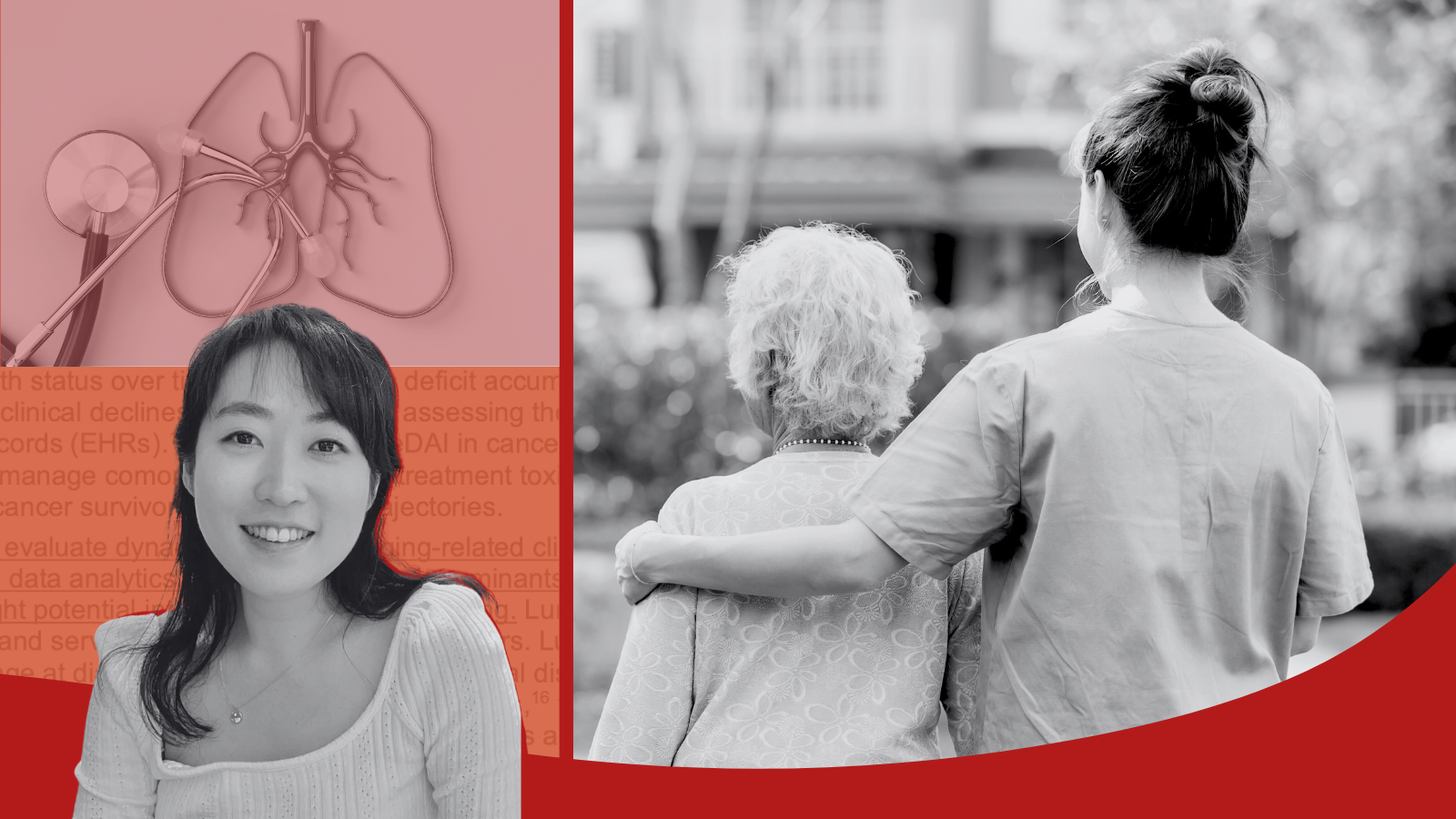
Dr. Eunji Choi, assistant professor of population health sciences, has received a K01 award from the National Institute on Aging for her research on aging-related clinical decline in lung cancer survivors. The K01 Mentored Research Scientist Career Development Award provides support for an intensive, supervised career development experience in the biomedical, behavioral, or clinical sciences leading to research independence.
Dr. Choi joined the Division of Epidemiology in 2024 and specializes in lung cancer research. While lung cancer is the leading cause of cancer death, new therapeutics have significantly improved survivorship rates among lung cancer patients, with many living for a long time while undergoing active treatment. However, cancer diagnosis and treatment are major contributors to the aging process.
Dr. Choi’s study aims to examine trajectories of aging-related clinical decline among lung cancer survivors aged 65 and older with early-stage, non-small cell lung cancer. Using a deficit accumulation frailty index, she will measure the buildup of aging-related deficits by analyzing nationwide claims data and electronic health records from Weill Cornell Medicine (WCM) and Stanford Hospital. These deficits include aging-related comorbidities, medical procedures, and the use of medical equipment, such as wheelchairs and hearing aids.
“Chronological age is not always aligned with biological aging. There remains a significant evidence gap in optimizing care to support healthy aging while achieving the best treatment outcomes for lung cancer survivors,” Dr. Choi explained. She highlights the need to identify individual and neighborhood-level social determinants of health (SDOH) factors that drive accelerated clinical decline. These insights could inform clinical practice and broader interventions to prevent early decline and promote healthy aging.
At the individual level, Dr. Choi will examine cancer treatment types, including emerging therapies, specific surgical techniques, tumor characteristics, and patient demographics. At the neighborhood level, she will analyze factors such as area deprivation, urbanization, and socioeconomic status. She then plans to develop a comprehensive risk prediction model for clinical decline, offering insight into the relationship between multilevel determinants and the aging process, and guiding strategies for healthier aging interventions.
“Many studies only focus on individual-level risk factors, such as a person's treatment or individual income,” Dr. Choi said. “We’re collecting socioeconomic data from places where patients live, along with data on air pollution, traffic, and other built environment factors to identify area-level risk factors.”
Dr. Choi will be mentored by and working alongside Dr. Jeanne Mandelblatt, professor of oncology at Georgetown University, Dr. Nasser Altorki, professor of thoracic surgery at WCM, and Dr. Summer Han, associate professor of neurosurgery at Stanford University. She is grateful to the members of the Division of Epidemiology for supporting her and highlights the importance of collaboration in moving this research forward.
"Combining expertise from epidemiology, oncology, and biostatistics is crucial," Dr. Choi explained, emphasizing the importance of a multidisciplinary approach to addressing aging-related issues in cancer survivors. "Collaboration allows us to conduct more impactful research and develop strategies to support healthy aging at both individual and national scales."
- Highlights

